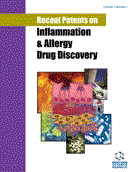Abstract
Sepsis continues to be a very important cause of morbidity and mortality despite advances in modern medicine. It is the cause of mortality in approximately 28-50% of the patients, with the risk increasing particularly in patients with multiple organ dysfunctions. Although anti-infective treatment and securing hemostasis form the cornerstone in the management of this condition, studies to develop new drugs are expected to reduce mortality in severely septic patients. Recombinant human activated protein C (rhAPC) was known as an anti-inflammatory agent with proven efficacy in severe sepsis patients and had a critical effect in the reduction of mortality when administered in the right dose and duration so far, but unfortunately current studies indicate that it was unable to show favorable effects of rhAPC on patients with severe sepsis. For this reason, interests are becoming focused on some other new approaches such as antioxidant treatments, stem cells, computer-implemented sepsis alerting systems, endotoxin removal devices. These attempts may reduce the incidence of mortality due to sepsis in the near future. Some patents on sepsis have also been reviewed in this article.
Keywords: New approaches, recombinant human activated protein C, sepsis
 5
5


















